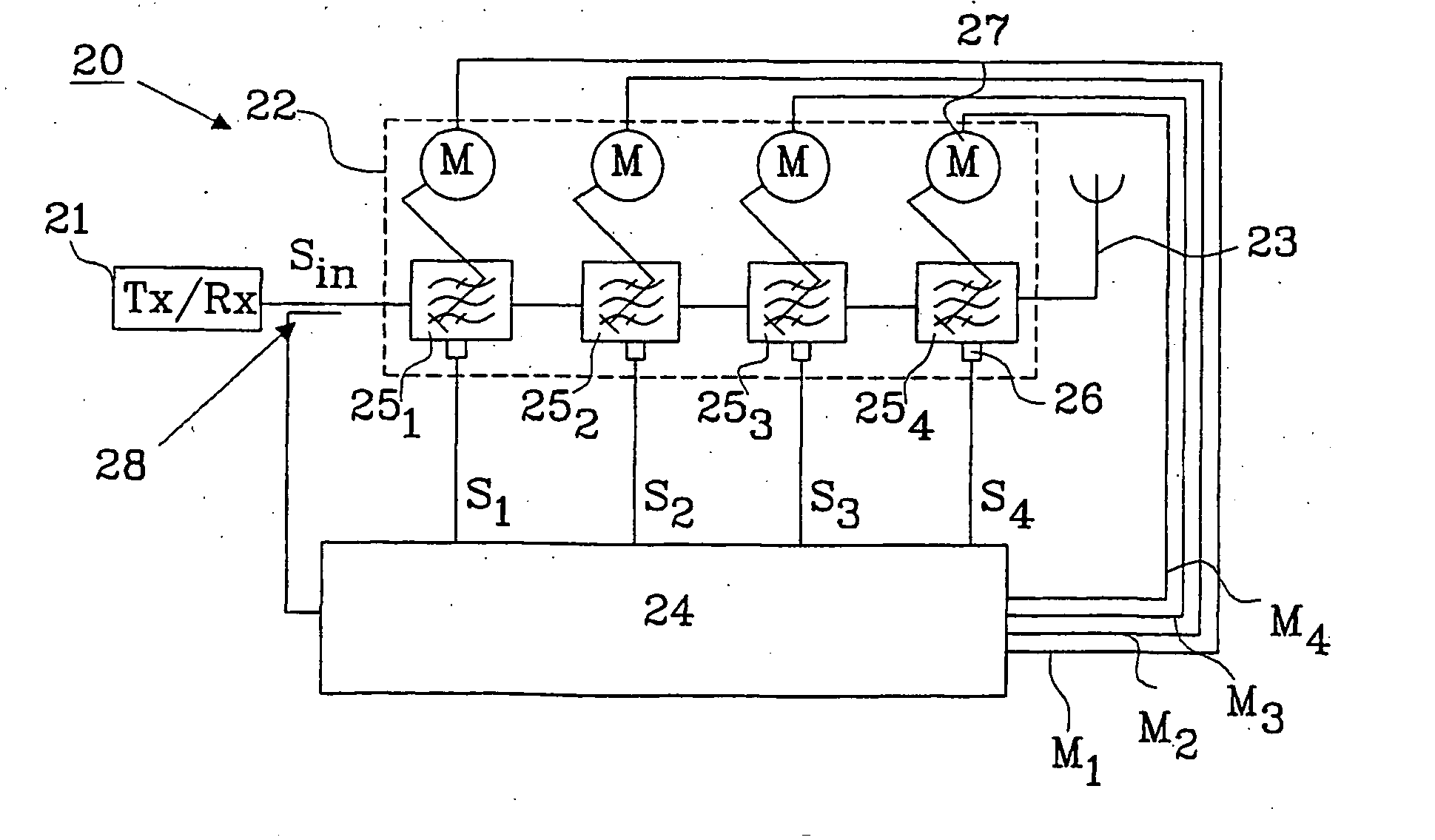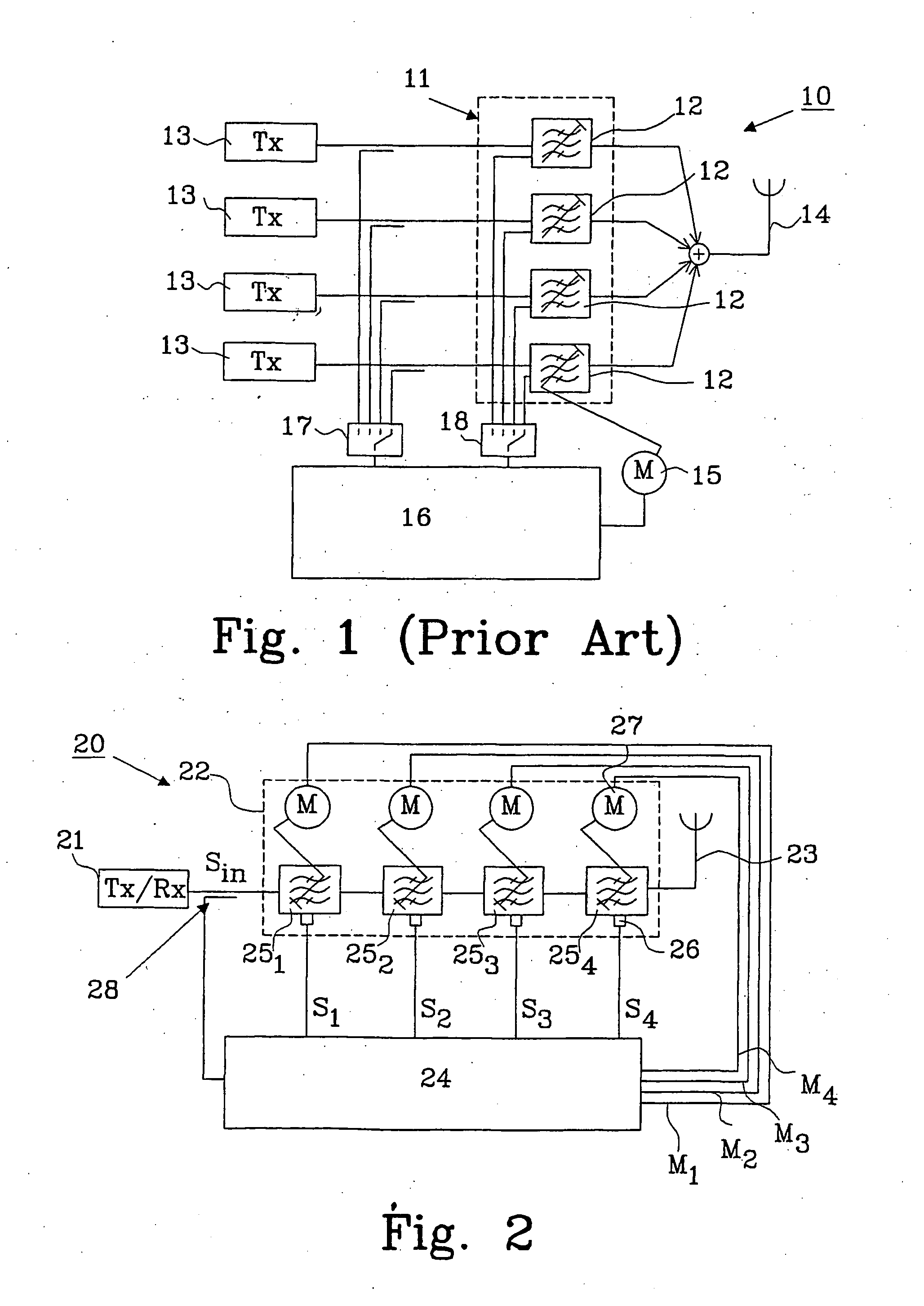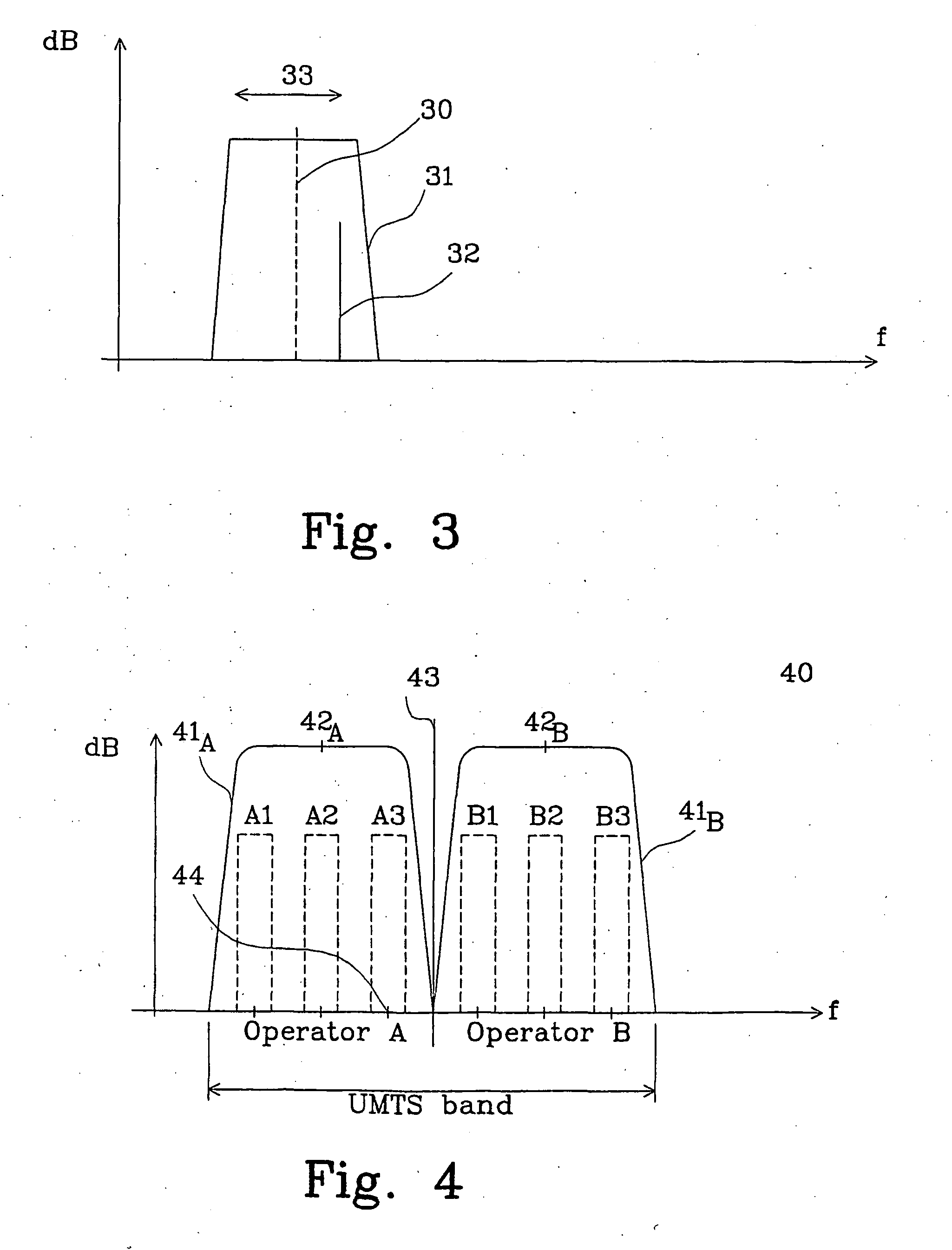Method for turning a radio filter, a radio filter and a system comprising such a radio filter
a radio filter and filter technology, applied in the direction of resonant circuit details, line-transmission details, resonant circuits using central processing units, etc., can solve the problems of filter not having the possibility to adjust itself, no longer being able to find one-to-one correspondence, built-in fault, etc., to achieve the effect of reducing the cost of manufacturing radio filters for different operating frequencies, and reducing the cost of filtering
- Summary
- Abstract
- Description
- Claims
- Application Information
AI Technical Summary
Benefits of technology
Problems solved by technology
Method used
Image
Examples
first embodiment
[0035]FIG. 2 shows a system 20 comprising a transceiver circuit 21 connected to a radio filter 22 according to the invention, an antenna 23 connected to an output from the radio filter 22 and a control unit 24. The filter comprises at least two resonator modules 25 coupled in cascade, in this embodiment there is four resonator modules 251-254 coupled in cascade. Each resonator module 25 being provided with a probe 26 and a tuning mechanism 27.
[0036] A sensor 28 is connected to the control unit 24, which detects if there is any signal Sin coming from the transceiver circuit 21 and furthermore senses the frequency content of signal Sin.
[0037] The frequency content is used in the control unit to determine the filter frequency, i.e. around which frequency the filter should operate, and as a reference to the measured signals from the probes.
[0038] Each probe 26 is used for measuring a signal parameter, e.g. phase or amplitude, at the resonator module, and is connected to the control un...
second embodiment
[0103]FIG. 9 shows a radio filter 93 according to the invention comprising an isolator circuit 94, provided between a transmitter circuit (not shown) and the input connection 95 to a first resonator module 961. The first resonator module 961 is cascade coupled with a second resonator module 962 and a third resonator module 963. An additional fourth resonator module 964 is parallel coupled with the second resonator module 962 and all present resonator modules are provided with tuning mechanisms (not shown) and probes 26 to measure signal parameters within each resonator module. The third resonator module is connected to an output connection 97.
[0104] A control unit 24 is provided, which receive information from the resonator modules from the probes 26 and a sensor 28 at the input connection 95 measures a reference signal Sref, as previously described in connection with FIG. 2.
[0105] The control unit 24 is also connected to the isolation circuit 94. A detection signal Sdet, which is ...
third embodiment
[0107]FIG. 10 shows a radio filter 100 according to the invention. Only the probes 26., the resonator modules 1011-1014 and the control unit 24 are illustrated. The output of the first resonator module 1011 and the input to the final resonator 1014 are directly connected by a connection 102. The control unit receive information regarding frequency content of the input signal S1, which may be done by a sensor, an isolator circuit or as an external signal as illustrated in FIG. 12. A reference signal is not measured in this example. Instead a self generated reference, within the control unit, is used as a reference when measuring the signal parameters at the resonator modules 1011-1014. Control signals M1-M4 are used to tune the filter.
PUM
 Login to View More
Login to View More Abstract
Description
Claims
Application Information
 Login to View More
Login to View More - R&D
- Intellectual Property
- Life Sciences
- Materials
- Tech Scout
- Unparalleled Data Quality
- Higher Quality Content
- 60% Fewer Hallucinations
Browse by: Latest US Patents, China's latest patents, Technical Efficacy Thesaurus, Application Domain, Technology Topic, Popular Technical Reports.
© 2025 PatSnap. All rights reserved.Legal|Privacy policy|Modern Slavery Act Transparency Statement|Sitemap|About US| Contact US: help@patsnap.com



